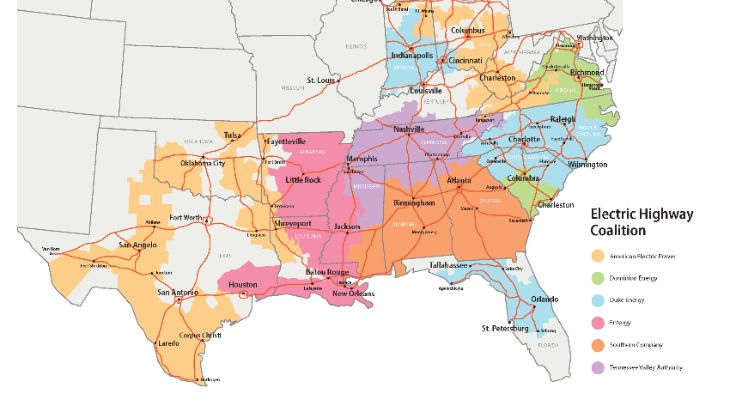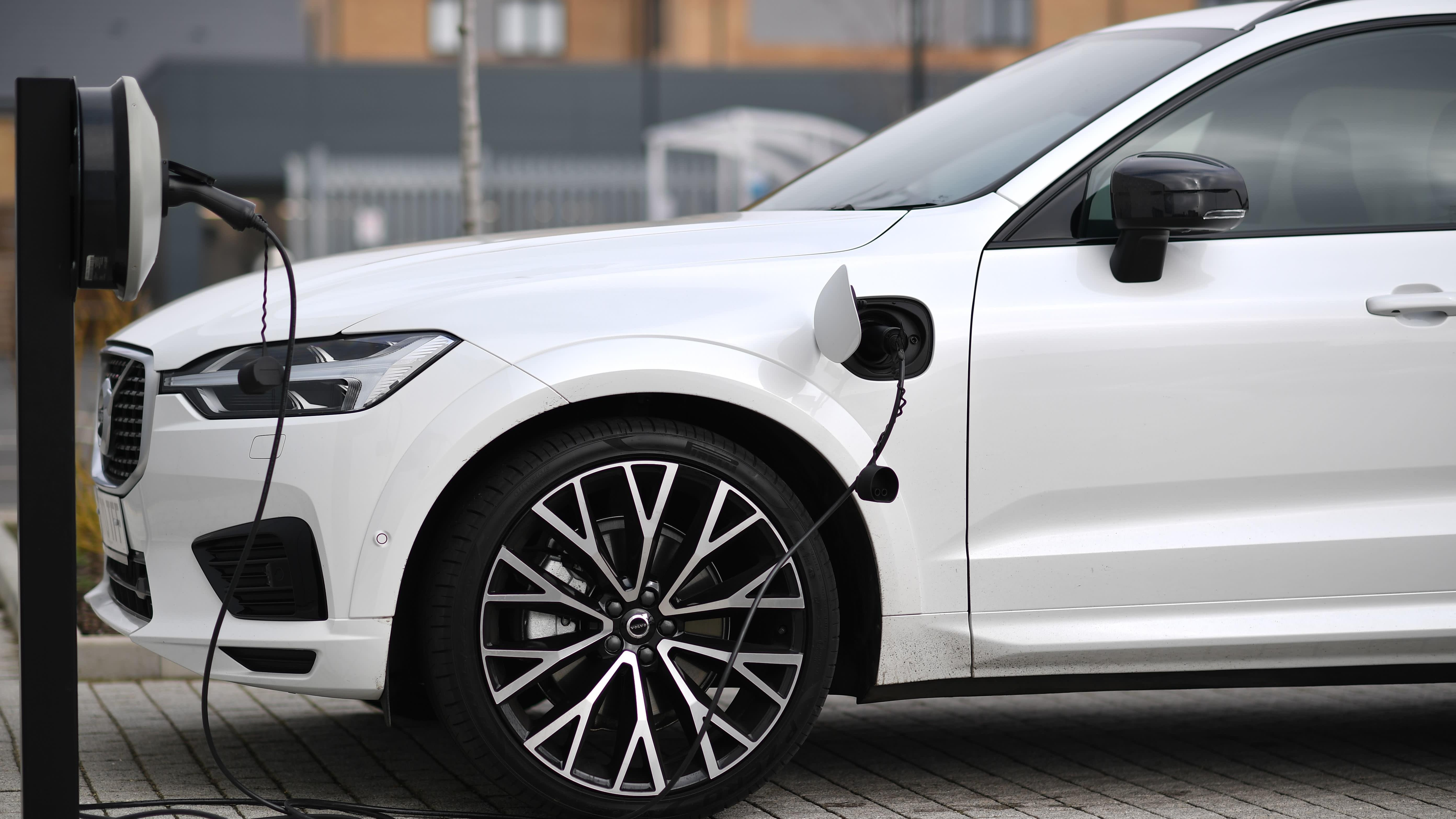Six Utilities Companies Join Up To Create A Massive Cross-Country EV Network
One of the main things holding back the adoption of electric vehicles is the lack of infrastructure available to keep these cars charged and moving. Now, six major energy providers are teaming up to form the Electric Highway Coalition, which is aiming to create a comprehensive network of DC fast chargers throughout the South, Midwest, and Atlantic Coast.
Basically, there isn't a great charging network right now—there are some fast chargers, but I've noticed that most of those faster charging stations are Tesla Superchargers, which only work for Tesla-brand cars. You can't slap a Hyundai EV in there, which sucks, because some of the other available chargers you run across can be slow or even broken. The Electric Highway Coalition is aiming for electric cars to be charged up and ready to hit the road within 30 minutes.

Right now, the six members of the coalition are America Electric Power, Dominion Energy, Duke Energy, Entergy Corporation, Southern Company, and the Tennessee Valley Authority.
"Throughout the ages, travelers have had to figure out how to get from point A to B. From feeding and watering horses, to filling gas tanks, and now recharging batteries, ensuring that there are convenient places to accomplish these tasks is critical," said Nichola Akins, CEO of American Electric Power, in a press release. "With this effort, we are working to help drivers see that EVs fit their lifestyle and their travel plans, wherever the road might take them."
This effort is especially important now that the Biden administration is putting a stronger emphasis on converting the entire country over to clean energy. All federal vehicles will have to be swapped over to EVs in the near future, so to ensure the government actually functions, it's going to be crucial to have a robust charging network that can accommodate all the new electric cars on the road—and to provide chargers that can actually do it quickly.
The Edison Electric Institute estimates 18 million EVs will be on US roads by 2030, but one of the main things standing in the way of a more widespread adoption is the lack of infrastructure. Hopefully, we'll see the Electric Highway Coalition changing things for the better.
